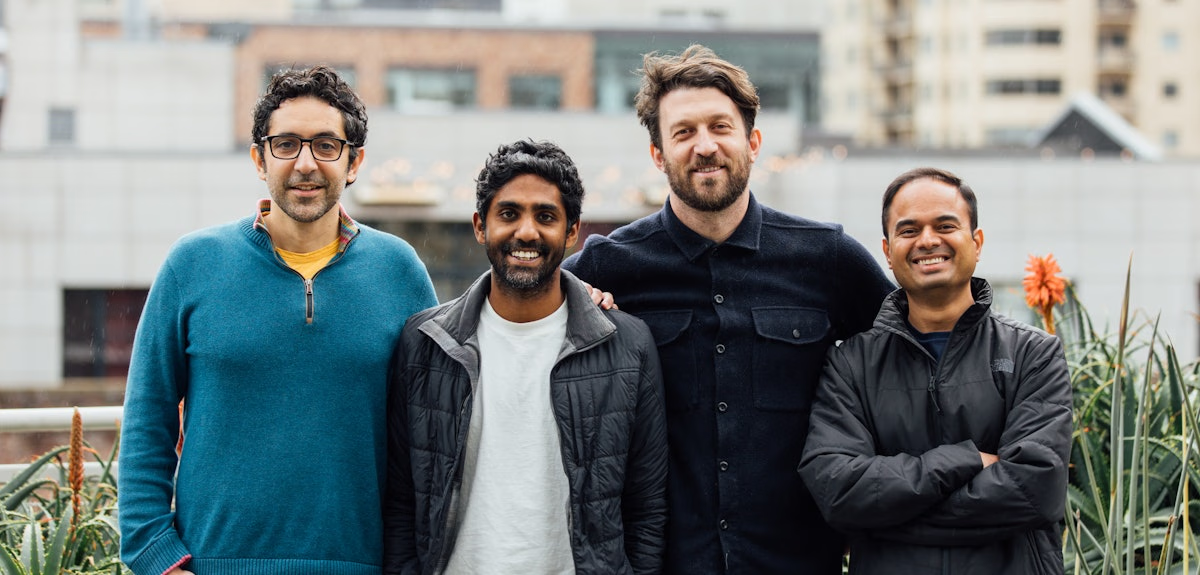
Spotlight On: Keaton Okkonen
We first met Black.ai co-founder and CEO Keaton Okkonen in the Startmate 2017 Accelerator. With a background in software engineering and cybersecurity, Keaton and his co-founder had a vision for an “accessible, reliable information layer that anyone can use to enable smarter, human-centric autonomous environments”.
Five years later, that vision is “largely unchanged - just better articulated”. With the information gap Keaton and his team are solving for extending to all kinds of human-driven environments from supermarkets to hospitals, the applications for Black continue to grow.
Read on to learn about Keaton’s other startup ideas, wrestling with adverse incentives, and why ideas aren’t worth anything in isolation.
Blackbird: Before founding Black you worked as a software engineer and security analyst. What were the key lessons learned at these early experiences, and how did they impact your own approach as a founder?
Keaton Okkonen: One key lesson was that sometimes I'd need to wrestle with adverse incentives. In the security world I'd often find and disclose serious security flaws that put sensitive information at risk. These are critical to find and fix, and the disclosure would be received in an almost random way company to company. I could be sent a generous reward, sometimes I'd get a t-shirt and a handwritten thank-you note from the Head of Security (thanks Linkedin), and other times I'd get strongly worded demands and threats of legal action when I'd obviously made someone look bad.
Whether it's hiring or working on customer success I believe it's critically important to start with the goals and incentives you're working with and work backwards. All of our staff are motivated to work on really hard problems, and to have ownership over their work. ESOP is one of the most powerful tools available to any founder and making sure your team has a direct incentive to make the company successful is great.
BB: Was Black your first startup idea or were there others before?
KO: It definitely wasn't the first startup idea that my co-founders or I have had. We're the sort that can't help but think through wild ideas to exhaustion, but this is the first startup two of us ever properly committed to building. In my opinion ideas aren't worth anything in isolation; execution, and the people you can convince to join you in that execution, is everything.
BB: At Blackbird, we first got to know you during the Startmate 2017 Accelerator. What was your vision for Black then, and how has it evolved since?
KO: Back in 2017 we envisioned Black.ai as an accessible, reliable information layer that anyone could use to enable smarter, human-centric autonomous environments. We knew a huge information gap existed between the spaces we live and work in, and our ability to understand what is going on to improve quality of life for people in those spaces. Moreover, the more people that used the space the worse the problem was. Our vision is largely unchanged - just better articulated.
BB: Black's first customers were predominantly in the retail industry but now you've expanded to healthcare, mining and more. Can you tell us a bit about why the applications for Black are so broad, and which industries can benefit the most from this technology?
KO: At Black we've found that this information gap exists in nearly all human-driven environments - from supermarkets to hospitals. There's just lots of cost-of-doing-business challenges that can't be solved without a good understanding of what's actually going on on-the-ground, and we're fixing that. Today we're focused on working in the most dynamic environments, where these problems are the most difficult to solve, so we can make our product robust and affordable for use in any space tomorrow.
.avif)
BB: You've recently raised and we heard you're now growing the team in a big way - which roles are you looking for at the moment and what type of people tend to thrive at Black?
KO: We are! We're looking for Machine Leaning Engineers, Data Scientists, Web Developers, and UX Designers to name a few roles. If you're the sort of person who is excited:
- By the idea of working on truly difficult problems;
- By the idea of working among peers who are the best in the world at what they do;
- To take initiative when you see a better way of doing something; and
- You're deeply motivated to have some ownership over what you're building
Then you'll thrive at Black.
BB: Finally, what excites you most about the future Black is building?
KO: At Black we're excited about solving technology problems to improve peoples lives.
Our customers use our product to do just that - they tackle the challenges that have always existed but otherwise can't be solved without key information at the right time. These are some of the hardest problems that exist, in everything from retail customer experience, to safety in aged care, and we're on a mission improve the quality of life for countless people around the world.
Keaton’s Spotlight On:
The last great article you read: This was a great piece on research debt and the importance of communicating complex ideas simply.
A podcast you never miss: I'm not super into podcasts, but 'The Case of the Missing Hit' by Reply All has to be one of the best and most hilarious works of investigative tech journalism ever. I highly recommend giving it a listen!
Your favourite website on the internet: A visual introduction to machine learning: absolutely awesome visualisation and great scientific education.



.jpg)






